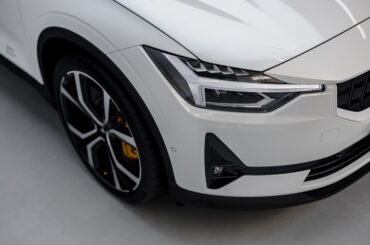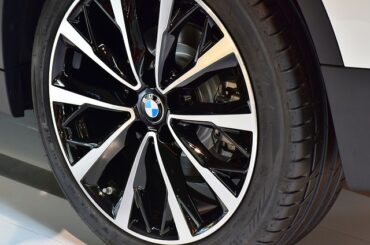When it comes to modifying vehicles, one popular modification is upgrading the wheels. However, before making a purchase, it’s essential to ensure the wheels will fit your vehicle. If you’re wondering, “will Toyota wheels fit Chevy?” keep reading to find out.
Firstly, it’s important to note that wheel fitment depends on several factors, including bolt pattern, center bore size, offset, and width. The bolt pattern refers to the number of bolts on the wheel and the diameter of the circle they form. Center bore size refers to the size of the hole in the center of the wheel, while offset is the distance between the hub mounting surface and the centerline of the wheel. Width is the distance between the inner and outer edges of the wheel.

Toyota vehicles typically have a 5×114.3 bolt pattern, while Chevy vehicles often have a 5×120.7 bolt pattern. This difference means that Toyota wheels will not fit directly onto Chevy vehicles without some modifications. However, it is possible to use wheel adapters or spacers to change the bolt pattern and make the wheels fit.
Center bore size is another crucial factor. Toyota wheels have a center bore size of 60.1mm, while Chevy vehicles typically have a center bore size of 70.3mm. This difference means that Toyota wheels will not fit snugly onto Chevy vehicles without the use of hub-centric rings. Hub-centric rings are plastic or metal rings that fit inside the wheel’s center bore and allow it to fit snugly onto the hub of the vehicle.
Offset and width are also crucial factors when it comes to wheel fitment. The offset is the distance from the hub mounting surface to the centerline of the wheel. Toyota wheels typically have a positive offset, meaning the hub mounting surface is closer to the wheel’s front face. Chevy vehicles often have a negative offset, meaning the hub mounting surface is closer to the wheel’s back face. This difference means that Toyota wheels may stick out further than Chevy wheels, which can cause rubbing on the fenders or suspension components.

In terms of width, Toyota wheels may be narrower or wider than Chevy wheels, depending on the specific make and model. A wider wheel may not fit into the wheel well of a Chevy vehicle without rubbing on the fenders or suspension components.
In conclusion, if you’re wondering, “Will Toyota wheels fit Chevy?” the answer is no, not without some modifications. However, it is possible to use wheel adapters or spacers to change the bolt pattern and hub-centric rings to adjust the center bore size. It’s essential to keep in mind factors such as offset and width, which can affect the fitment of the wheels. Before making any modifications to your vehicle, it’s important to consult with a professional to ensure that the modifications are safe and will not cause any issues with your vehicle’s performance or handling.
It’s also important to note that modifying your vehicle’s wheels may affect its warranty. If you’re considering making any modifications, it’s best to check with your dealership or manufacturer to ensure that your warranty will not be voided.
Another factor to consider is the legality of wheel modifications. Each state and country has its laws regarding vehicle modifications, including wheel size and fitment. It’s important to research and understands your local laws before making any modifications to your vehicle to avoid fines or legal issues.

In addition to modifying the wheels themselves, it’s also crucial to consider the impact on the vehicle’s overall performance. Changing the wheel size or offset can affect the handling and braking of your vehicle, which can be dangerous. It’s important to ensure that any modifications you make do not negatively impact the safety or performance of your vehicle.
In conclusion, while it is possible to fit Toyota wheels onto Chevy vehicles with modifications, it’s important to consider all factors, including bolt pattern, center bore size, offset, and width. It’s also crucial to research the legality of modifications in your area and ensure that any modifications you make do not negatively impact your vehicle’s safety or performance. If you’re unsure about any aspect of wheel fitment or modifications, it’s best to consult with a professional to ensure that your modifications are safe and legal.






